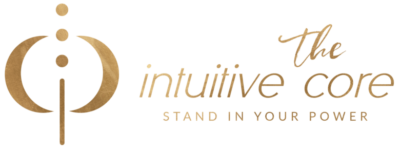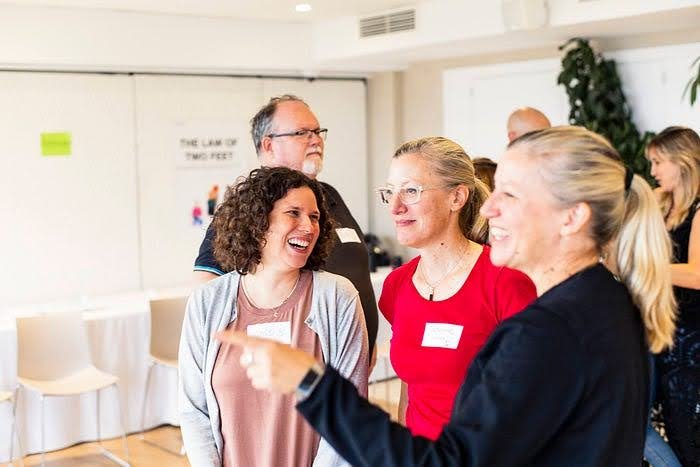How my personal experiment changed everything about how I work
Discover the Power of Digital Minimalism for Deeper Connections and Personal Fulfillment
Our sociality is simply too complex to be outsourced to a social network or reduced to instant messages and emojis. ~ Cal Newport (Digital Minimalism)
How It Began for Me
In early 2019, I received the book “Digital Minimalism” by Cal Newport, best known for “Deep Work” and “A World Without Email”. I didn’t know about the other books, or anything about Cal Newport, but was intrigued by the title, because I had just begun working for a FinTech. It was a curious experiment, could I go “minimal” working for a tech start up? (And what did that even mean anyway?)
At my new job, I immediately had to download 5 new apps for phone security, communication and goal setting. My role there was as an agile coach, so although I was responsible for enabling communication and coaching teams across the company to be transparent and to approach things iteratively, I was keen to experiment with how things were “done”. (As in “this is how we do things here”.) I wanted to see if I could shine a light on any behavior patterns that no longer served people.
What I noticed right away was the abundance of communication. Slack, email, confluence, meetings. It was a lot. And mostly asynchronous. I had to silence my phone — all the time — and make blocks in my calendar for lunch, otherwise it would be booked for meetings!
After 6 months, I got really sick. Looking back, I think it was an early warning from my body about burnout. It was the only way I could turn off, not think about work — I mean, I loved my work!
So, this book arrives and I think, time to read this and pay attention. Because if this is happening to me, at a senior level where I have the maturity to set professional and personal boundaries, what about younger people who don’t have that experience? What kind of role model was I being?
My Personal Experiment
Inspired by Cal Newport, I made a decision.
It began as a personal challenge. After reading “Digital Minimalism”, I felt validated. I wasn’t the only one suffering under the illusion that my phone was an extension of my occupational performance. I was a single parent and had been an independent contractor for many years. Now I was an employee, and still felt lonely. How could I bring in some perspective and self-regulation?
Well, what about getting off of Facebook for a month? Or why not all social media? So, for one month, with a notice to my Facebook and Instagram connections that I was going offline to test a theory, I deleted both apps from my phone. I offered email for those who wanted to reach me and then began.
Immediate Impact
At first, it was similar to an addiction. I noticed that my response to boredom was initially to pick up my phone. But without the apps, I put it down. On public transportation or waiting in line, I quickly learned to bring a book, or get good at people watching. However, the biggest gift came on my birthday, halfway through the experiment.
Instead of getting superficial, obligatory “Happy Birthday!” “Hope it was a great day!” messages, I got very intentional and specific messages via email or my messaging app. These people had made an extra effort to reach out to me. I didn’t even register that it was only 5 or 6 people, because I felt so loved. I knew it took a little extra time and energy, more than just clicking a “heart” emoji or a “thumbs up” button. And that extra effort felt doubled in energy.
I connected to the sense of deeper meaning that these personal messages held, not the number of messages I received.
How I brought it to work
I was so busy all the time. I couldn’t think. I was easily distracted in the open office. (Yes, I was one of those introverts that was grateful when the government told us we had to stay home.)
And then I noticed that I was doing a million things at once. And details and deeper thinking weren’t happening. I was working in a liminal space of not really connecting to what I was doing — or who I was doing it with — because I was focused on “done”.
Working in this liminal space also meant that I wasn’t getting fulfillment from my work. There was no time to absorb the satisfaction. No real celebration, and only minimal appreciation. Let’s be honest, appreciation is what fills our tanks — our energy — at work.
Thus, we keep trying to work, but from a place of depletion.
Working from this place as a leader means you respond with less compassion, and your strategies are short sighted. And this always ripples out to others.
So, I started another experiment — blocking a week day from all scheduled meetings. “No Meeting Wednesdays” were set in my calendar with the explanation “I will only accept spontaneous meetings today. If you need to schedule it, and you choose today, I will reject it.”
It meant that I could have spontaneous conversations, but overall I was free from any other commitments other than reflection and dot connection.
It wasn’t as easy as just posting it in my calendar though. I had to enforce it. At first with helpful suggestions, “How about this other time/day — I see it’s open in your calendar?” and then outright meeting rejections. Even with the CEO — at least twice.
I framed it as an experiment by:
- Writing an email announcement with a clear goal and time box (1 month)
- Setting a baseline rating (mine was a 3 on a scale of 10 for current productivity and satisfaction)
- Inclusion of others to join me (there were 7 of us)
Thus, I had few blockers to execute it.
In the end, 6 out of 7 of us adopted this “No Meeting” blocker for at least a 6 hour period one day a week. One day to do deep thinking. We saw that our rating for focus and satisfaction went up after a month. And it had a lot to do with having that one day to not stress over “done”.
And you know what we noticed? We were having more meaningful and surprising conversations on these days too. We were connecting with co-workers at a deeper level, with more space to let ideas breathe — more space to refill our batteries.
And Now…
Although I no longer work for the FinTech, I still don’t have Facebook or Instagram — and three years later (and counting) — I don’t even miss them.
But I still have to protect my attention, because there is always a new app that you need to download to board a plane, get your money, buy tickets to a show or get a doctor’s appointment.
To gain the convenience we trade our precious mental real estate. But I believe, as with everything, we have a choice. And at some point, we will realize that having an app for everything will not gain us time or fulfillment. Only we can do that for ourselves.
Starting with an awareness about where we spend our attention span and where we give our ability to connect away.
What’s one place you could regain some mental real estate and gain back some precious time or meaningful relationship building?
Share your hacks and experiments in the comments so we can co-inspire each other!

